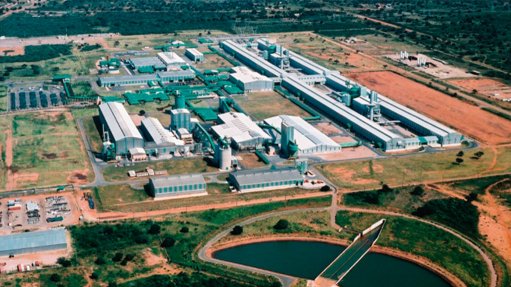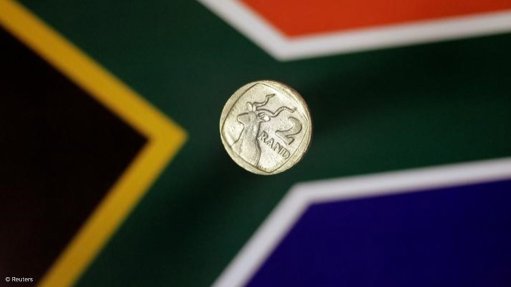Malawi: a shining democracy
It’s election season in Africa. At the time of writing, Nigerians and their fellow West Africans in Senegal were due to go to the polls in a few days, while the Democratic Republic of Congo (DRC) is in the process of charting a new course, having voted in a new administration in December. Later in the year, several other countries will be electing a new President or re-electing the incumbent should he or she be deemed to still be fit for purpose.
Those exercising this key democratic right will be the citizens of Guinea-Bissau (March), Algeria (April), South Africa and Malawi (May), Mauritania (mid-2019), Mozambique, Botswana and Namibia (October) and Tunisia (December).
For me, of all these countries, Malawi stands out. The former British colony does not get much media coverage on these shores, with the odd mention being when Madonna flies in to adopt an orphaned child or two. Another occasion in the recent past was when Jacob Zuma, in an attempt to deflect criticism of his misrule, chose to gratuitously insult this peace-loving nation. And he did manage to invoke a few giggles from his audience. A question had been asked about tolling on Gauteng’s urban roads, and the response from the then President was: “We can’t think like Africans in Africa. It’s not some national road in Malawi.” That was way back in 2013, when he was at the zenith of his power.
I admire Malawians for the depth of their democracy. You only need to look at the field of Presidential candidates for the May elections to appreciate this. It includes the incumbent, Peter Mutharika, younger brother of the late former President, Bingu wa Mutharika. He will be battling it out with eight other candidates, including his Vice President, Saulos Chilima, who now leads a new opposition party.
Mutharika and Chilima are still Cabinet colleagues and, together, will be presiding over affairs of the State until election day. As far as I know, that they have now become political rivals has not crippled the functioning of government. I am aware the Malawi Constitution bars the President from sacking his number two willy nilly – and this is probably the reason Chilima has remained in his position since his bromance with his boss soured – but if Mutharika really had a mind to it, Chilima’s Vice Presidency would be history by now.
Also seeking the mandate to become Malawi’s number one citizen is 40-year-old Atupele Muluzi, who is the candidate of the United Democratic Front, a party once led by his father, former President Bakili Muluzi. But being the scion of Muluzi Snr is not his only claim to fame – he currently serves in Mutharika’s Cabinet, as his Minister of Health. Like Chilima, he still works very closely with his President-cum-rival to ensure government continues to function properly.
Then there is Joyce Banda. Many will remember her as Malawi’s first female President, serving from April 2012 to May 2014, when she was voted out in an election that swept Mutharika to power. Allegations of financial malfeasance started surfacing soon after her defeat, forcing her to flee into exile, returning home only in April 2018. There have been no visits from the cop shop whatsoever and she has been campaigning freely.
The logo of the Malawi Congress Party (MCP) will also be on the ballot paper. This is the party of founding President Kamuzu Banda, who led the country to independence in 1964 but soon went rogue. Anyone who so much as raised his or her voice in protest would face horrible repercussions. But the MCP Presidential candidate is probably on the hustings as you read this piece, with absolutely no interference from the authorities.
Malawians may be “Africans in Africa” (whatever Zuma meant by that), but I love them for the maturity of their democracy, which is not replicated in many parts of Africa.
Finally, an update on the goings-on in the DRC, which has been featured on this page quite regularly of late: the bad guys who are now in charge have wasted no time in doing crazy things. Former Ministers are now entitled to lifelong salaries and other benefits.
Article Enquiry
Email Article
Save Article
Feedback
To advertise email advertising@creamermedia.co.za or click here
Announcements
What's On
Subscribe to improve your user experience...
Option 1 (equivalent of R125 a month):
Receive a weekly copy of Creamer Media's Engineering News & Mining Weekly magazine
(print copy for those in South Africa and e-magazine for those outside of South Africa)
Receive daily email newsletters
Access to full search results
Access archive of magazine back copies
Access to Projects in Progress
Access to ONE Research Report of your choice in PDF format
Option 2 (equivalent of R375 a month):
All benefits from Option 1
PLUS
Access to Creamer Media's Research Channel Africa for ALL Research Reports, in PDF format, on various industrial and mining sectors
including Electricity; Water; Energy Transition; Hydrogen; Roads, Rail and Ports; Coal; Gold; Platinum; Battery Metals; etc.
Already a subscriber?
Forgotten your password?
Receive weekly copy of Creamer Media's Engineering News & Mining Weekly magazine (print copy for those in South Africa and e-magazine for those outside of South Africa)
➕
Recieve daily email newsletters
➕
Access to full search results
➕
Access archive of magazine back copies
➕
Access to Projects in Progress
➕
Access to ONE Research Report of your choice in PDF format
RESEARCH CHANNEL AFRICA
R4500 (equivalent of R375 a month)
SUBSCRIBEAll benefits from Option 1
➕
Access to Creamer Media's Research Channel Africa for ALL Research Reports on various industrial and mining sectors, in PDF format, including on:
Electricity
➕
Water
➕
Energy Transition
➕
Hydrogen
➕
Roads, Rail and Ports
➕
Coal
➕
Gold
➕
Platinum
➕
Battery Metals
➕
etc.
Receive all benefits from Option 1 or Option 2 delivered to numerous people at your company
➕
Multiple User names and Passwords for simultaneous log-ins
➕
Intranet integration access to all in your organisation


















